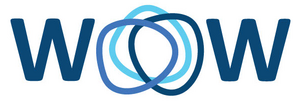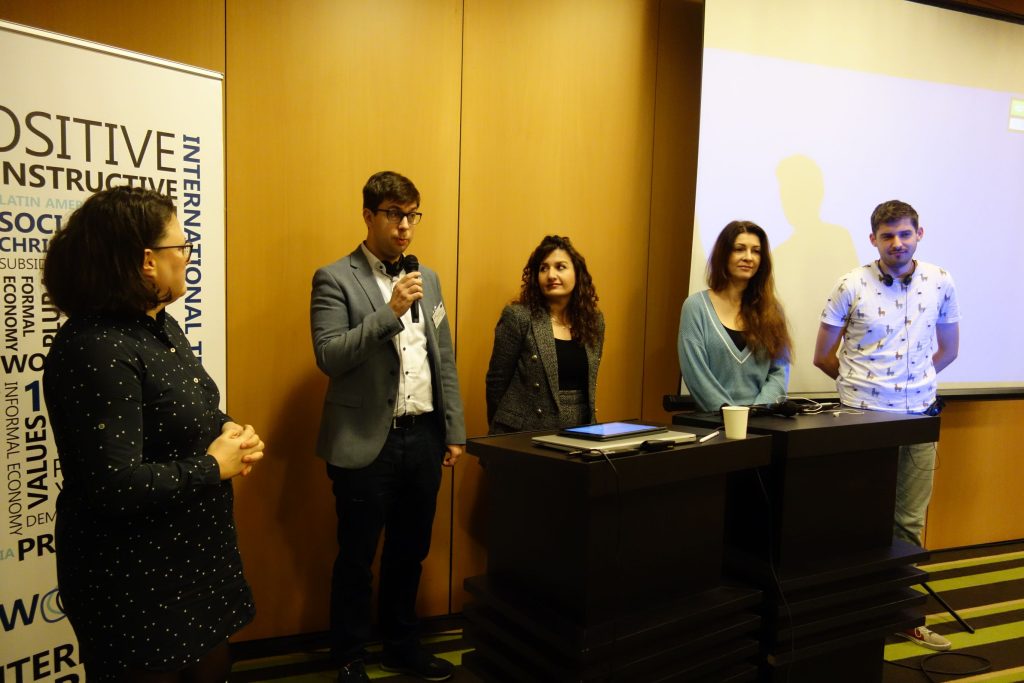Equality and non-discrimination is of great importance to the EU. This becomes clear when looking at EU law and policy-making. ‘The Employment Equality Framework Directive (adopted by the Member States in 2000) establishes a general framework for equal treatment in employment and occupation. It aims to protects everyone in the EU from discrimination based on age, disability, sexual orientation and religion or belief in the workplace.’ Furthermore, ‘the EU is committed to developing measures to ensure equal opportunities and equality of treatment for people regardless of gender. This ethos applies in all areas of economic, social, cultural and family life. The EU is also pursuing gender mainstreaming in order to reinforce equality rights and combat gender discrimination.’
So the framework for equality is well in place. But what about the actual implementation? Is there complete equality? Does every EU-citizen have the same opportunities? In general terms, but also in terms of employment possibilities. Without reading a thing one should be able to say that this is not the case. There are still numerous obstacles in place preventing full equality. And this is not only the case for the inequality between men and women. This is also the case when looking at persons with a migrant background. Those who have a certain disability. And also for those with a certain sexual preference. And not only comes this to the fore in salaries. There are more subtle differences too. Think of job-interviews, scanning CV’s according to surnames, looking at one’s address. And it is perhaps these subtle forms of discrimination that are most painful. These are sometimes difficult to detect and often hard to proof.
Finding answers to this is not an easy task. There are several reasons for that. An important factor is fear. Fear of losing one’s job, fear of being left out, fear of being ignored even more. Another factor is shame. The person affected feels bad and embarrassed. And anger and frustration of course. A very important reason is also the lack of proof in many instances. The signs are there but actual proof is missing. And in the case that discrimination is sort of institutional then it is one against the rest.
More than 50 European trade union specialist discussed the importance of equal treatment during a two-day seminar in the city of Lisbon, Portugal (2-8 February 2023). The initiative was organized by the Krifa and WOW-Europe in cooperation with the European Centre for Workers’ Questions (EZA) and funded by the European Commission. What became clear is that there are many blind-spots making actual equality difficult to achieve.
When looking at persons with disabilities and the labour market in Portugal, Ms. Maria Paula Pestana De Freitas Pinto, Associate Professor and Coordinator of the Observatory on Disability and Human Rights at the University of Lisbon stressed that there are different ways to understand disability. From the medical point-of-view (where disability is the problem) or from the view of society (where society is the problem). Of course it is true that sometimes certain disabilities make it almost impossible to do a certain task, but often with some organizational adaptations these problems can be solved. Looking at the statistics Portugal is doing relatively well in comparison to the EU. Still persons with disabilities are more prone to unemployment (a difference of approx. 16%).
Mr. António Pedro Roque da Visitação Oliveira, Deputy in the Assembly of the Portuguese Republic spoke about the future of work and the quest for equality. In this day and age the digital economy is leading to new ways of organizing work. ‘Developments in communications and information technologies lead to significant changes in classic labour relations that become more flexible and without border restrictions, leading to the emergence of atypical forms of employment’ António Pedro Roque da Visitação Oliveira said. Furthermore, equality is growing between those with a fixed job and those with an atypical work relation. Leading to a form of inequality which, unlike some types of physical or mental disabilities, is not or hardly visible.
A completely different approach came from Mr. Rolf Weber. In the Danish union Krifa they have a Job Satisfaction Knowledge Centre. This centre researches the level of job satisfaction in Denmark. What they found out is that a lack of job-satisfaction has a bad influence on the individual, the company and society and that when people feel good about their jobs there is a big win for everyone. In Krifa they distinguish between job pleasure and job satisfaction, where pleasure is the feeling one gets when experiencing something pleasant and job satisfaction more about wellbeing and motivation. They identified seven factors that together account for the majority of the Danes’ job satisfaction (Meaning, Mastering, Leadership, Influence, Balance, Achievements, Colleagues). When people are satisfied there is less sick leave, they retire at a later age, and they work more hours.
In “Equal opportunity and nondiscrimination at the workplace” Mr. Goce Trajkovski focused on the various forms of discrimination as well as non-discrimination policies at the workplace. Important in that respect is ‘an inclusive and tolerant company culture’ and ‘transparency’. Gender should not be an issue at all, but at the different stages of a career and levels in the hierarchy this is unfortunately still the case. Diversity is still far-away.
This was supported by Ms. Soraya Faez in her contribution titled Noblesse Oblige (Nobility Obliges). When looking at the terms Affirmative action, Diversity, and Inclusion it shows that there is still a divide between Us and Them. When is an organization diverse and inclusive? Surely many companies are diverse and inclusive at certain levels in the structure of the organization. But from a certain level up we see that this is no longer the case. Then most organizations are dominated by white men. Diversity is the first step. Inclusion the next. And inclusion not only benefits companies. It also leaves employees happier, more proud and more satisfied of their jobs. Still it remains difficult and tricky. We all have our blind spots. Things we take for granted and do not realize. Being able to see beyond our own reality and to step outside of our comfort-zone is pivotal to make changes.
Young people in general and young workers in particular are faced with many challenges. Ms. Carolin Moch, European Coordinator of the International Young Christian Workers stated that ‘Especially young people often experience multiple discrimination (intersectionality).’ They feel most discriminated in education, when searching a job and at the workplace. But also in other areas they often feel treated unequally. Young people should be listed to more often and should be an equal discussion-partner. Ms. Moch then asked the young people who were part of a the panel about their experiences. This gave tremendous insight in the thoughts and perception of young people.
The final speaker, Mr. Paulo Gonçalves Marcos, Chairman of the board of the National Union of Bank Staff and Technicians and President of the Union of Independent Trade Unions, gave some insights in the workings of his union whereby he focused on the developments when it comes to diversity. Several measures were in place to make sure that the organization remains a thriving one.
Diversity on the labour market comes in many shapes and forms. It is not just about gender, pay gap, ethnicity, age, sexual orientation etc. It is more far-reaching and will shape our societies. This because these groups of people, and thus workers, can no longer be ignored. The sheer size of these groups of people forces everyone to (re)think policy. No one is the same, but everyone is equal and should be treated accordingly.
There are a number of challenges and opportunities ahead. Important issues are: to review the legislation concerning “employment internships”, to enforce the implementation of quotas system, to raise awareness about disability issues among employee support structures (e.g. ombudsman, unions, workers’ committees) and among employers.
for pictures click here





